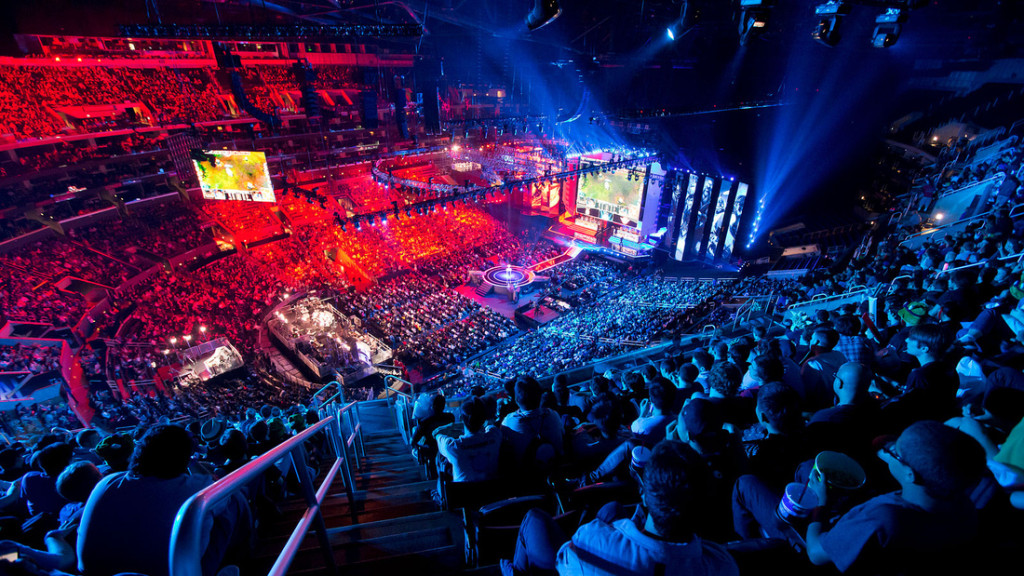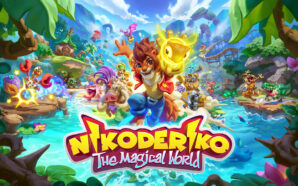Hear me moan,
I watched a genuinely interesting documentary about eSports on BBC3 called The Supergamers, which followed Youtube celebrity Dan Howell (I know, I’ve never heard of him either) interviewing professional gaming athletes at various stages of their careers. The documentary focused on three supergamers in particular; KaSing, who is already at the top of his game; Impaler, who is struggling to maintain his position; and Greensheep, who has to decide whether to commit to gaming or focus on his studies.
I was pleased that the documentary spent time with the fans, the managers and the commentators because these are all areas that might have been neglected in order to spend more time with the gaming athletes. However, although I find the subject of eSports fascinating the show hasn’t convinced me to actually dedicate any time watching eSports. Here’s why…
The Games
I don’t play multiplayer games because I see gaming as a solitary experience. That’s an attitude I have imposed on myself because I enjoy playing games when nobody else is involved. I don’t like cooperating and I don’t like competing so I am more than happy to sink my time in a single-player campaign. I can take it all in my own stride and I’m comfortable with that.
League of Legends
eSports is the complete opposite and therefore I have no knowledge of the games being played. Of course I know what League of Legends, Hearthstone and Counter Strike are, and it’s my minimum knowledge of what they are that has me avoiding them. I never intend to play them so why would I watch a stream of other people playing them?
The Shoutcasters
I don’t like how eSports are portrayed. I don’t mean how the general media portrays them; I mean how eSports portrays itself. I don’t mind the lightshows and the elaborate computer rigs because it adds atmosphere and visually represents the modern day sport – but what I cannot tolerate are the shoutcasters.
eSports Game Rig
The shoutcasters are the commentators. They watch the games with microphones stuffed under their chins and verbally describe what’s taking place on the big screens. They exist to make the fast-paced action easily digestible to the audience who (like me) may not be able to keep up. So as a job role I don’t think it’s pointless – it’s just the over-the-top Americanised sports commentating I don’t like. In eSports it feels like a poor mimic of established sports commentating and I find it alienating. In my eyes it’s a lost opportunity to present a new sport in a fresh, modern way.
It’s A Sport
You may have noticed the title of this week’s blog is a direct reference to EA Sports’ motto “it’s in the game” but it seems to me there is more emphasis on eSports being a sport and less emphasis on the game. This isn’t something I’m not looking for which is why I find it difficult to become a fan – I’m also in the minority.
But stay with me for one more moment. Imagine you’re in my shoes for a second. I don’t play or watch football, rugby, darts, swimming or any other sport in the Olympics. I do love playing videogames though. Then I find out eSports is a thing. Maybe THIS IS IT – the perfect sport for me, a sport that blends both my passion with an activity I couldn’t care less about.
EA Sports It’s In The Game
And then you find out everything about eSports is a mirror-image of everything you hate about sport, except it now has a virtual component and the athletes don’t look like the Greek Pantheon.
And now you know how it feels to be isolated and miserable.
None of this is to say I hate eSports as I’ve always supported its move from the underground to the mainstream and I will continue to do so as it continues to prove itself as a legitimate sport and career path. The only loser here is me as, for the reasons listed above, I doubt I will fully appreciate eSports for what they truly are.
Want to retaliate? Post a comment. I lament once a week but you can follow me on Twitter @LeeLaments where I moan every day. Also listen to the Out of the Xfire Podcast to witness me make harsh judgements about PlayStation.








